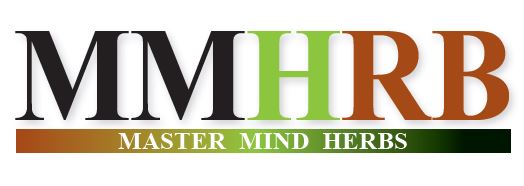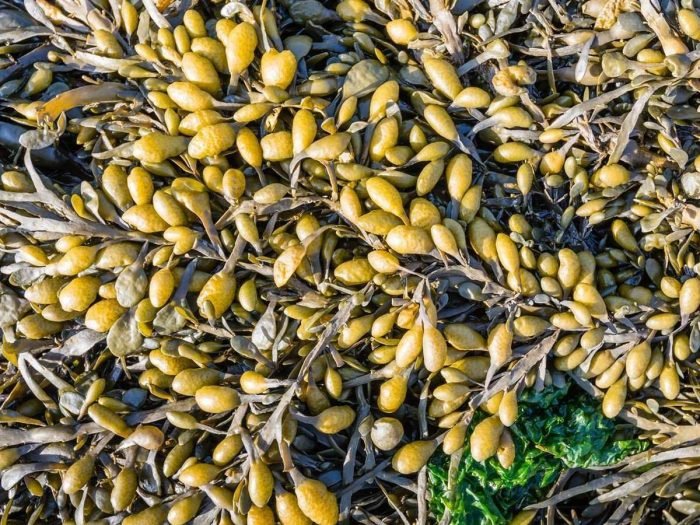 🌿 Seaweed Nutrition from the Field of Master Mind Herbs (MMHRB) 🌊
🌿 Seaweed Nutrition from the Field of Master Mind Herbs (MMHRB) 🌊
Shared from the research of: Joseph Mercado 🙇
Article Author: John Staughton 👨
Content Contributor: Organic Facts 🌏
To: Herbal Lover 🌱
Blog Post #1167 📌
Re: Benefits of Bladderwrack Seaweed 🍃
Date and Time: Tuesday, April 20, 2021 at 9:01 p.m. ⏰
Dear Herbal Lover,
Bladderwrack, an iodine-rich seaweed, is used for thyroid problems, obesity, joint pain, constipation, and skincare.
Dietary bladderwrack is available most commonly as an herbal supplement, capsules, or powder.
Bladderwrack powder is also mixed into water or facial scrubs for skin-related benefits to improve its efficacy.
While this has been used in alternative treatments for hundreds of years, there is not enough scientific evidence to verify its health benefits. Let us learn more about this not-so-known algae.
What is Bladderwrack?
Although the name may be a bit odd, bladderwrack is one of the most common types of seaweed found in the oceans.
This kelp variety has the scientific name Fucus vesiculosus, as it is known around the British Isles, Europe, the Baltic Sea, and even the eastern coast of North America.
Some of the other names of bladderwrack include rockweed, red fucus, and black tang, depending upon the part of the world.
This type of seaweed prefers shelter inlets without too much movement or current and is found in huge numbers in certain areas.
The plant is highly identifiable by the small paired air sacs found along the midrib branches.
Bladderwrack has been an herbal remedy and a culinary element in various cultures for centuries.
It was the source of iodine, which was hugely important in treating various conditions, such as deficiency, a consequence of which can be goiter – and is also an important part of a nutritional diet.
The high levels of mucilage, beta-carotene, iodine, potassium, zeaxanthin, and other organic compounds give this herb a great deal of health power as well.
It is not advisable to take bladderwrack without the supervision of a doctor as it is a concentrated form of iodine, and an excess of iodine can cause hypothyroidism.
Bladderwrack Benefits:
Let’s take a closer look at some of the health benefits of bladderwrack…
Potent Source of Iodine:
Bladderwrack was the source of iodine back in the 19th century. Iodine is an important modulator of our thyroid gland and can ensure that our hormonal and metabolic activities are under control.
Therefore, as a powerful source of iodine, bladderwrack has become associated with treating many types of thyroid disorders, including goiter.
However, studies have shown that the therapeutic use of iodine requires medical supervision as too much or too little can cause further disruption in the normal functioning of the thyroid gland.
Researchers found that bladderwrack when combined with herbs like guggul and blue flag root, can have beneficial effects in the treatment of thyroid dysfunction.
They also found that bladderwrack could cause iodine sensitivity.
May Aid In Weight Loss:
In many cultures, bladderwrack is thought to heighten metabolism, which makes it easier to lose weight.
Many weight loss supplements do contain bladderwrack in combination with other herbs, because of its effect on the workings of the thyroid gland. There is no clinical evidence to suggest that these drugs help in weight loss or metabolism management.
However, a 2016 committee report by the European Medicines Agency (EMA) stated that the effectiveness of bladderwrack medicines is plausible even though there is no conclusive study and that there is evidence that they have been safely used for weight management for at least 30 years.
Reduced Inflammation:
One of the other popular uses of bladderwrack over the years has been as an anti-inflammatory substance due to its active constituents – fucoidans and fucoxanthin.
Whether you are suffering from gout, arthritis, hemorrhoids, or skin irritation, bladderwrack may successfully neutralize the irritation, reduce swelling, and even relieve pain.
The internal and external (topical) uses of bladderwrack may both be useful approaches and are even better in conjunction, such as for sore muscles and joints.
One 12-week study showed that isolated fucoidans from brown marine algae including bladderwrack helped reduce arthritis stiffness and pain. However, better human clinical trials are needed to support this use.
Improved Digestion:
There are several different types of fiber found in bladderwrack, but one particularly important one is alginic acid.
Alginic acid relieves constipation and adds bulk to stool, promoting a smooth digestive process that is efficient in terms of nutrient uptake.
Bladderwrack steeped in hot water with ginger, or bladderwrack tea, is often used to relieve excess flatulence, bloating, cramping, and more serious conditions like gastric ulcers
May Boost Heart Health:
Research studies have linked bladderwrack with higher levels of HDL cholesterol (good cholesterol), which may contribute to helping you prevent atherosclerosis, lowering blood pressure, reducing your risk of strokes and heart attacks, and generally lessen the strain on your cardiovascular system.
Anti-aging Properties:
There are many valuable minerals found in bladderwrack that can help to make the skin beautiful, but there are also powerful organic chemicals that can slow down the aging process. These antioxidants in bladderwrack keep the skin looking healthy and young, reduce age spots and blemishes, and lessen the appearance of wrinkles.
Antioxidants can also boost skin elasticity, keeping your skin looking tight and toned well into your old age.
Menstrual Cycle Regularity in Pre-menopausal Women:
Dietary bladderwrack may help increase the duration of the menstrual cycle in premenopausal women and may also help reduce the risk of diseases related to estrogen.
A preliminary clinical trial looked at the effect of the seaweed on three premenopausal women with irregular menstrual cycle patterns.
They found that it helped prolong the menstrual cycle and exerted an anti-estrogenic effect on the women, which may help reduce the risk of estrogen-related complications.
However, a study with a larger sample size may help understand this therapeutic benefit better.
Other Benefits:
Certain active compounds present in bladderwrack are being studied for their possible health benefits.
Fucoidan is being studied as a potential therapy against age-related macular degeneration.
Calcium alginate in alginic acid may assist in wound healing.
Alginic acid has also shown to have an inhibitory effect on the HIV virus in a test tube study.
Side Effects:
Women who are pregnant or lactating should not take this herbal supplement.
The side effects of bladderwrack occur if there has been excess ingestion of iodine or if it is used for a prolonged period of time.
It is advisable to check with your medical professional before adding this herbal remedy into your health regimen.
Excessive iodine in the body can cause the following side effects:
Thyroid problems: High concentrations of iodine can worsen thyroid problems.
If you suffer from hyperthyroidism, then you may not need an extra boost of iodine.
Iodine allergy: Also, some people are allergic to iodine, so large amounts of bladderwrack could be very dangerous.
Heavy metal contamination: Seaweeds that grow in waters that may have high levels of heavy metals, especially arsenic and lead, are harmful to health.
They can lead to nerve or kidney damage and other problems.
Acne breakout: Kelp or seaweed ingestion may cause acne breakouts in some people.
Finally, if you have an upcoming surgery or suffer from a bleeding disorder, you should avoid bladderwrack, as it can make blood clotting more difficult.
Content Source: Organic Facts

 Email Us a Message
Email Us a Message 

Please send us a personal message below and we will serve you momentarily.
We appreciate you visiting the MMU Global Research Directory
For more blog posts, videos, articles, and to generate more knowledge, please feel free and…





 Fly Over to the MMU Facebook Page with Hoot
Fly Over to the MMU Facebook Page with Hoot
 Visit the MMU Facebook Group Today
Visit the MMU Facebook Group Today 